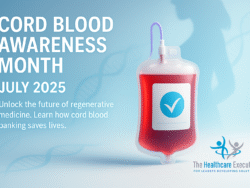Aphasia Awareness Month – June 2025

- Posted by Greg Wahlstrom, MBA, HCM
- Posted in Health Observance Calendar
Hospital Leadership and Communication Equity Strategy
Published: June 16, 2025
Each June, Aphasia Awareness Month draws attention to a condition that impairs the ability to communicate but leaves intelligence intact. Aphasia affects more than two million Americans and often results from stroke, traumatic brain injury, or progressive neurological disorders. Despite its prevalence, aphasia remains underdiagnosed, misunderstood, and insufficiently supported within most hospital systems. For healthcare executives, this observance is not just an educational campaign—it is a leadership imperative. Communication is foundational to care, and when patients are unable to express needs or understand clinical directions, safety, equity, and outcomes all suffer. Hospitals must integrate aphasia readiness into emergency response, inpatient rounding, outpatient care, and discharge planning protocols. Systems such as University of Rochester Medical Center and Houston Methodist Aphasia Center have developed interdisciplinary speech-language pathways to manage care transitions. Executive teams that ignore communication disorders risk compromising patient engagement, compliance, and long-term recovery. Aphasia is not rare—but it is often invisible. This month is a important time for hospitals to re-evaluate how communication equity is embedded in their strategic care models.
Operationalizing care for patients with aphasia requires cross-functional alignment among emergency departments, neurology, rehabilitation, and speech-language pathology. Aphasia may present suddenly or subtly, and early identification is key to minimizing functional loss and maximizing recovery. ED teams should be trained to recognize communication barriers that may not align with traditional stroke metrics. Inpatient staff should receive scripts and visual aids to support patient comprehension during rounding. Organizations like UC Davis Health are integrating speech-language evaluations into all post-stroke admissions to ensure timely intervention. Likewise, digital health tools such as communication apps, picture boards, and AI-based voice synthesis are emerging as scalable supports. Hospital executives must fund and champion the inclusion of these tools in both acute and long-term care plans. Additionally, discharge protocols should include aphasia-specific caregiver education, outpatient referrals, and home-based speech therapy pathways. The failure to address aphasia holistically results in higher readmissions, patient frustration, and avoidable harm. Leadership is essential in ensuring that every voice is heard—especially those struggling to speak.
From a systems strategy perspective, Aphasia Awareness Month reveals deeper challenges in how hospitals approach communication disability and clinical equity. Many hospitals invest heavily in digital patient portals and clinical communication tools, yet fail to account for individuals who cannot use them due to language loss. Executive leaders must review patient-facing technologies to ensure accessibility for patients with speech and language impairments. At Atrium Health Carolinas Rehabilitation, stroke and aphasia teams have expanded access to visual treatment tools and community reentry programs. Organizational leadership must also consider workforce readiness. Are staff trained to recognize aphasia versus confusion or mental illness? Are interpreters or augmentative communication resources readily available on all units? When care is delivered without communication equity, quality and trust suffer. As health systems embrace value-based care, aphasia metrics—including recovery timelines, functional outcomes, and patient satisfaction—should be tracked alongside traditional indicators. Boards and C-suite leaders should request regular reports on speech-language capacity, discharge alignment, and community reintegration for patients with aphasia. Building an infrastructure that sees and serves patients with communication disabilities is not just a clinical goal—it’s a reflection of institutional integrity.
Hospitals are paramount in the public role during awareness campaigns, using these observances to advance culture change, reduce stigma, and promote health literacy. Aphasia is often misunderstood by the public as cognitive impairment, leading to isolation and mistreatment of affected individuals. Executives can designate June as a time for in-house policy reviews, provider education, and public engagement. Institutions such as ChristianaCare have launched initiatives to integrate stroke survivor voices into policy review and outpatient services. Partnering with groups like the National Aphasia Association or the American Stroke Association can amplify your system’s visibility and community impact. Featuring survivor stories in newsletters, town halls, or waiting room videos builds awareness while centering the patient voice. Executive champions—whether CMOs, CNOs, or patient experience leads—can use this month to reinforce the organization’s values around dignity, inclusion, and responsive care. In an increasingly transparent healthcare market, showing leadership on conditions like aphasia signals that the organization is attuned to the full spectrum of human needs.
As Aphasia Awareness Month continues through June 2025, healthcare leaders have a unique opportunity to translate awareness into action across departments. Executives should ask: Do we have consistent screening for post-stroke aphasia? Are we tracking therapy progress and community reintegration? Are patients leaving our facilities with the communication support they need to thrive? These are not rhetorical questions—they are the benchmarks of leadership in complex care. Executive teams should identify three to five goals related to aphasia care this month, such as expanding speech-language capacity, piloting communication-accessible portals, or standardizing post-discharge speech referrals. Doing so ensures that the month’s observance produces sustainable, measurable progress. Systems that ignore aphasia risk widening gaps in care and outcomes. But those that address it with focus and humility will build safer, more responsive, and more equitable hospitals. Communication is a human right. At OHSU Brain Institute, post-stroke speech and language rehabilitation has been fully integrated into quality dashboard reviews and acute recovery planning. Let June 2025 be the month your hospital follows suit and transforms awareness into enterprise-level improvement.
Discover More
Interested in building a systemwide communication equity strategy aligned with post-stroke care, rehabilitation, and long-term neurological outcomes? Our editorial insights are crafted to support hospital leaders at every level of rare and complex care delivery.
Internal Resources
- Rare Disease Day 2025: How Hospital Leaders Can Advance Equity and Innovation
- Brain Awareness Week 2025: Executive Guide to Cognitive Health
- Stroke Awareness Month 2025: Leadership Response to Time-Critical Care



